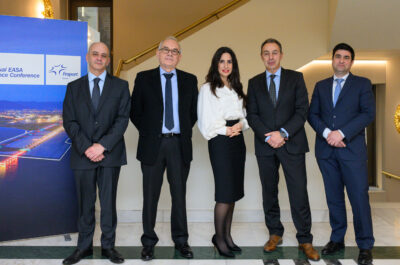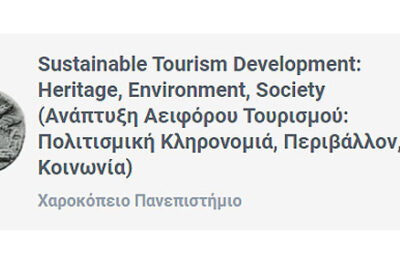Insightful discussion with Professor Andreas Papatheodorou on the recovery of the aviation industry post-COVID, challenges in revenue management, sustainable aviation, and the role of technology in enhancing airport services. An in-depth look at the future of aviation in a post-pandemic world.
From the elegant premises of the Grand Hyatt Hotel in Athens, Greece, we recently had the privilege to sit down with Professor Andreas Papatheodorou. An esteemed professional from the Aegean University, Professor Papatheodorou also serves as the President of the Hellenic Aviation Society and is a member of the Executive Board of the Hellenic Civil Aviation Authority.
In a candid discussion, Professor Papatheodorou shared his expert insights into the challenges and opportunities facing the global aviation industry post-COVID.
COVID’s Impact and the Aviation Industry’s Resilience
The aviation industry, like many others, was profoundly affected by the COVID-19 pandemic. 2020 and 2021 were characterized by significant declines in passenger numbers, revenue, and profitability. Despite these challenges, the industry started showing signs of recovery in 2022. With projections for 2023 looking even brighter, there’s hope for airlines to make profits again. However, this doesn’t negate the substantial losses incurred during the pandemic years.
Rising Airfares and Customer Satisfaction
A notable trend post-pandemic has been the increase in airfares. This rise can be attributed to airlines needing to recover from their losses. However, with the global economy still reeling from the pandemic’s effects, it remains to be seen how this will impact the volume of travellers in the long run.
Equally concerning has been the downturn in customer satisfaction due to widespread delays, cancellations, and ground-handling issues. While the situation is expected to improve, challenges remain.
Sustainability: A Key Focus for the Future
Sustainability is at the forefront of global discussions. With pressing concerns around climate change, the aviation sector is seeking solutions to reduce its carbon footprint. Professor Papatheodorou highlighted the importance of Sustainable Aviation Fuels (SAF) as a viable short-term measure. Meanwhile, solutions like electrification or hydrogen-based fuels are promising but will take time to be implemented at scale.
Leveraging Technology and Addressing Staff Shortages
The post-pandemic era has seen technology playing a pivotal role in aiding the aviation industry’s recovery. Automation, driven by Artificial Intelligence (AI), has seen increased adoption, especially in customer service applications like chatbots. However, human resources remain essential, particularly in roles like ground handling.
The so-called “big resignation” saw many in the aviation industry leave their jobs during the pandemic. Bringing these professionals back and reaffirming the industry’s value will be crucial in the coming years.
Theodore is the Co-Founder and Managing Editor of TravelDailyNews Media Network; his responsibilities include business development and planning for TravelDailyNews long-term opportunities.





























































































































































































